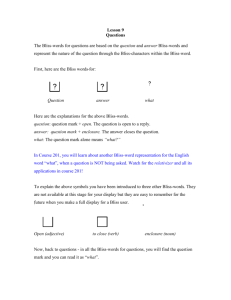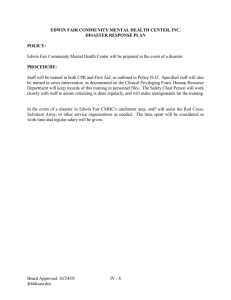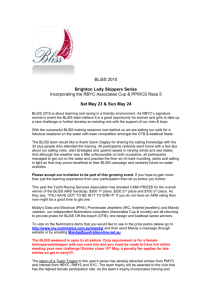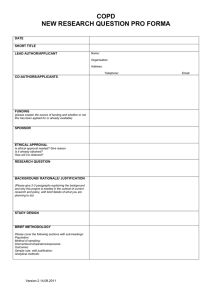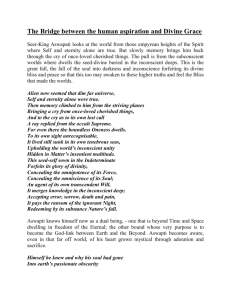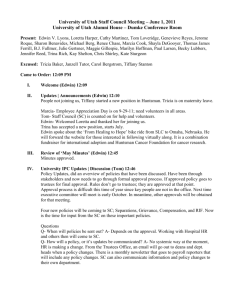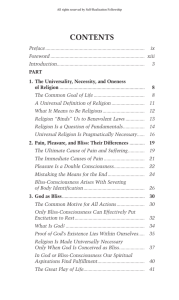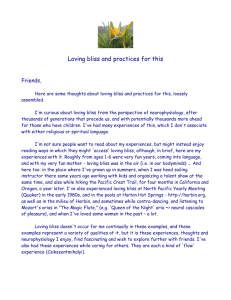Part II Learning to Learn
advertisement
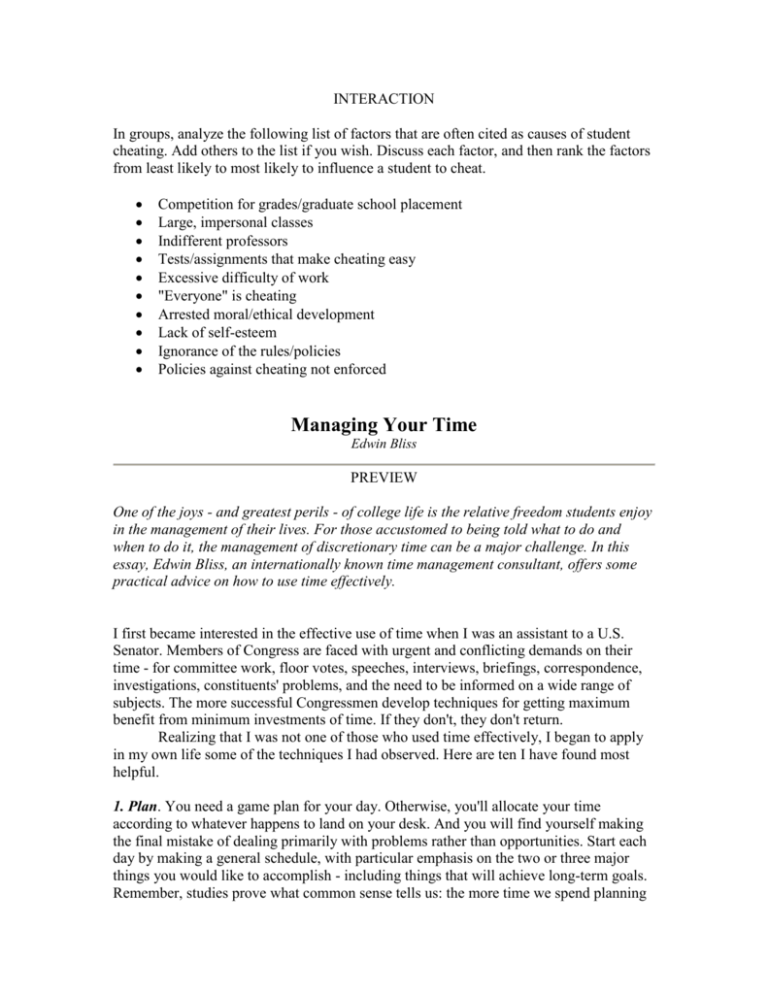
INTERACTION In groups, analyze the following list of factors that are often cited as causes of student cheating. Add others to the list if you wish. Discuss each factor, and then rank the factors from least likely to most likely to influence a student to cheat. Competition for grades/graduate school placement Large, impersonal classes Indifferent professors Tests/assignments that make cheating easy Excessive difficulty of work "Everyone" is cheating Arrested moral/ethical development Lack of self-esteem Ignorance of the rules/policies Policies against cheating not enforced Managing Your Time Edwin Bliss PREVIEW One of the joys - and greatest perils - of college life is the relative freedom students enjoy in the management of their lives. For those accustomed to being told what to do and when to do it, the management of discretionary time can be a major challenge. In this essay, Edwin Bliss, an internationally known time management consultant, offers some practical advice on how to use time effectively. I first became interested in the effective use of time when I was an assistant to a U.S. Senator. Members of Congress are faced with urgent and conflicting demands on their time - for committee work, floor votes, speeches, interviews, briefings, correspondence, investigations, constituents' problems, and the need to be informed on a wide range of subjects. The more successful Congressmen develop techniques for getting maximum benefit from minimum investments of time. If they don't, they don't return. Realizing that I was not one of those who used time effectively, I began to apply in my own life some of the techniques I had observed. Here are ten I have found most helpful. 1. Plan. You need a game plan for your day. Otherwise, you'll allocate your time according to whatever happens to land on your desk. And you will find yourself making the final mistake of dealing primarily with problems rather than opportunities. Start each day by making a general schedule, with particular emphasis on the two or three major things you would like to accomplish - including things that will achieve long-term goals. Remember, studies prove what common sense tells us: the more time we spend planning a project, the less total time is required for it. Don't let today's busywork crowd planningtime out of your schedule. 2. Concentrate. Of all the principles of time management, none is more basic than concentration. People who have serious time-management problems invariably are trying to do too many things at once. The amount of time spent on a project is not what counts: it's the amount of uninterrupted time. Few problems can resist an all-out attack; few can be solved piecemeal. 3. Take Breaks. To work for long periods without taking a break is not an effective use of time. Energy decreases, boredom sets in, and physical stress and tension accumulate. Switching for a few minutes from a mental task to something physical - isometric exercises, walking around the office, even changing from a sitting position to a standing position for a while - can provide relief. Merely resting, however, is often the best course, and you should not think of a "rest" break as poor use of time. Not only will being refreshed increase your efficiency, but relieving tension will benefit your health. Anything that contributes to health is good time management. 4. Avoid Clutter. Some people have a constant swirl of papers on their desks and assume that somehow the most important matters will float to the top. In most cases, however, clutter hinders concentration and can create tension and frustration - a feeling of being "snowed under." Whenever you find your desk becoming chaotic, take time out to reorganize. Go through all your papers (making generous use of the wastebasket) and divide them into categories: (1) Immediate action, (2) Low priority, (3) Pending, (4) Reading material. Put the highest priority item from your first pile in the center of your desk, and then put everything else out of sight. Remember, you can think of only one thing at a time, and you can work on only one task at a time, so focus all your attention on the most important one. A final point: clearing the desk completely, or at least organizing it, each evening should be standard practice. It gets the next day off to a good start. 5. Don't Be a Perfectionist. There is a difference between striving for excellence and striving for perfection. The first is attainable, gratifying, and healthy. The second is often unattainable, frustrating, and neurotic. It's also a terrible waste of time. The stenographer who retypes a lengthy letter because of a trivial error, or the boss who demands such retyping, might profit from examining the Declaration of Independence. When the inscriber of that document made two errors of omission, he inserted the missing letters between the lines. If this is acceptable in the document that gave birth to American freedom, surely it would be acceptable in a letter that will be briefly glanced at en route to someone's file cabinet or wastebasket! 6. Don't Be Afraid to Say No. Of all the time-saving techniques ever developed, perhaps the most effective is frequent use of the word no. Learn to decline, tactfully but firmly, every request that does not contribute to your goals. If you point out that your motivation is not to get out of work, but to save your time to do a better job on the really important things, you'll have a good chance of avoiding unproductive tasks. Remember, many people who worry about offending others wind up living according to other people's priorities. 7. Don't Procrastinate. Procrastination is usually a deeply rooted habit. But we can change our habits provided we use the right system. William James, the father of American psychology, discussed such a system in his famous Principles of Psychology, published in 1890. It works as follows: 1. Decide to start changing as soon as you finish reading this article, while you are motivated. Taking the first step promptly is important. 2. Don't try to do too much too quickly. Just force yourself right now to do one thing you have been putting off. Then, beginning tomorrow morning, start each day by doing the most unpleasant thing on your schedule. Often it will be a small matter: an overdue apology; a confrontation with a fellow worker; an annoying chore you know you should tackle. Whatever it is, do it before you begin your usual morning routine. This simple procedure can well set the tone for your day. You will get a feeling of exhilaration from knowing that although the day is only 15 minutes old, you have already accomplished the most unpleasant thing you have to do all day. There is one caution, however. Do not permit any exceptions. William James compared it to rolling up a ball of string; a single slip can undo more than many turns can wind up. Be tough with yourself, for the first few minutes of each day, for the next two weeks, and I promise you a new habit of priceless value. 8. Apply Radical Surgery. Time-wasting activities are like cancers. They drain off vitality and have a tendency to grow. The only cure is radical surgery. If you are wasting your time in activities that bore you, divert you from your real goals and sap your energy, cut them out, once and for all. The principle applies to personal habits, routines, and activities as much as to ones associated with your work. Check your appointment calendar, your extracurricular activities, your reading list, your television viewing habits, and ax everything that doesn't give you a feeling of accomplishment or satisfaction. 9. Delegate. An early example of failure to delegate is found in the Bible. Moses, having led his people out of Egypt, was so impressed with his own knowledge and authority that he insisted on ruling personally on every controversy that arose in Israel. His wise fatherin-law, Jethro, recognizing that this was poor use of a leader's time, recommended a twophase approach: first, educate the people concerning the laws; second, select capable leaders and give them full authority over routine matters, freeing Moses to concentrate on major decisions. The advice is still sound. You don't have to be a national leader or a corporate executive to delegate, either. Parents who don't delegate household chores are doing a disservice to themselves and their children. Running a Boy Scout troop can be as time-consuming as running General Motors if you try to do everything yourself. One caution: giving subordinates jobs that neither you nor anyone else wants to do isn't delegating, it's assigning. Learn to delegate the challenging and rewarding tasks, along with sufficient authority to make necessary decisions. It can help to free your time. 10. Don't Be a "Workaholic. " Most successful executives I know work long hours, but they don't let work interfere with the really important things in life, such as friends, family, and fly fishing. This differentiates them from the workaholic who becomes addicted to work just as people become addicted to alcohol. Symptoms of work addiction include refusal to take a vacation, inability to put the office out of your mind on weekends, a bulging briefcase, and a spouse, son, or daughter who is practically a stranger. Counseling can help people cope with such problems. But for starters, do a bit of self-counseling. Ask yourself whether the midnight oil you are burning is adversely affecting your health. Ask where your family comes in your list of priorities, whether you are giving enough of yourself to your children and spouse, and whether you are deceiving yourself by pretending that the sacrifices you are making are really for them. Above all else, good time management involves an awareness that today is all we ever have to work with. The past is irretrievably gone; the future is only a concept. British art critic John Ruskin had the word "TODAY" carved into a small marble block that he kept on his desk as a constant reminder to "Do It Now." But my favorite quotation is by an anonymous philosopher: Yesterday is a canceled check. Tomorrow is a promissory note. Today is ready cash. Use it! SOURCE: Edwin Bliss, "Managing Your Time." Reprinted with the permission of Scribner, a Division of Simon & Schuster, from Getting Things Done: The ABCs of Time Management, Revised, and Updated Edition by Edwin C. Bliss. Revised and Updated Edition Copyright @ 1991 by Edwin C. Bliss. Copyright © 1976 by Edwin C. Bliss. DIALOGUE 1. Are you typically late for classes, appointments, and meetings? Are you often unprepared? Do you tend to put off doing unpleasant chores? If you answered yes to any of these questions, what techniques mentioned in the essay could you use to change these behaviors? 2. Are you satisfied with the balance between work and fun in your life? If not, what techniques does the author suggest to help you achieve a better balance? 3. What is your reaction to people who are workaholics? Do you admire their dedication or see their work addiction as a serious problem? Explain. WRITING TOPICS l. If you feel you have an effective system for managing your time, describe it. If time management is an area that needs improvement, what are some things you could do differently to make the best use of your time? 2. Think of a person in your experience whose time management you admire. Comment on that person's habits and organization. Specify which attributes you find commendable. 3. Clarify the difference between striving for excellence and striving for perfection. Use examples from your experience as a student to illustrate the difference between the two concepts. INTERACTION Which of the ten strategies outlined by Edwin Bliss do you consider most important in managing your time effectively? Which ones are you least likely to practice? Discuss these questions in small groups and compare responses with the other groups. REFLECTIONS Review the ideas you expressed at the beginning of this part in "Write before You Read." How have your ideas changed as a result of reading the articles in this part? Explain in the space below. 1. Tests and the grading system 2. Cheating and plagiarism 3. How you manage your time WRITING ASSIGNMENT Over the course of five working days, keep a log in which you record how you spend your time. When the five days are over, analyze your log and write an evaluative summary of your time management performance in relation to the ten techniques in Bliss's essay. Which techniques did you practice? Which techniques did you ignore or neglect?
